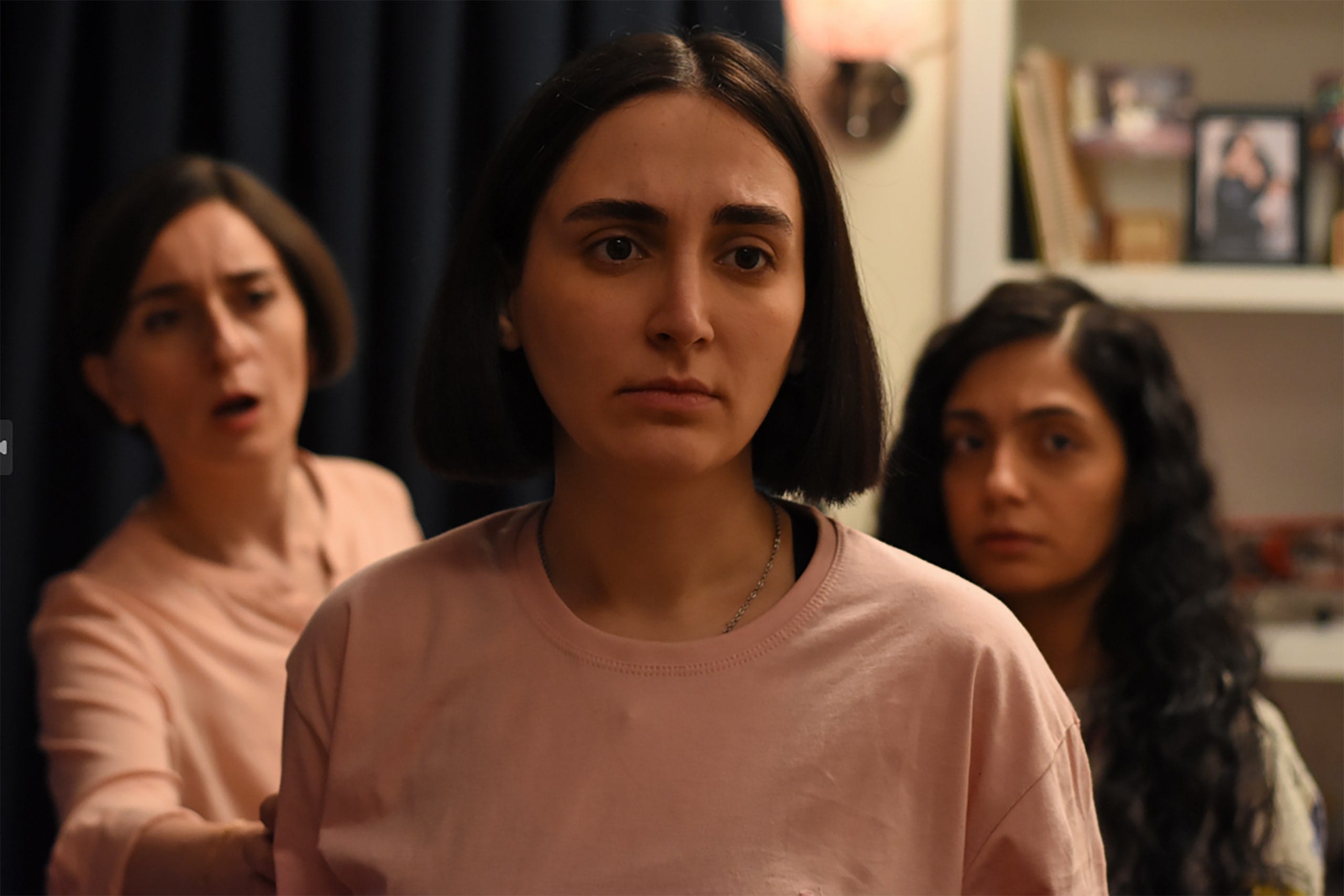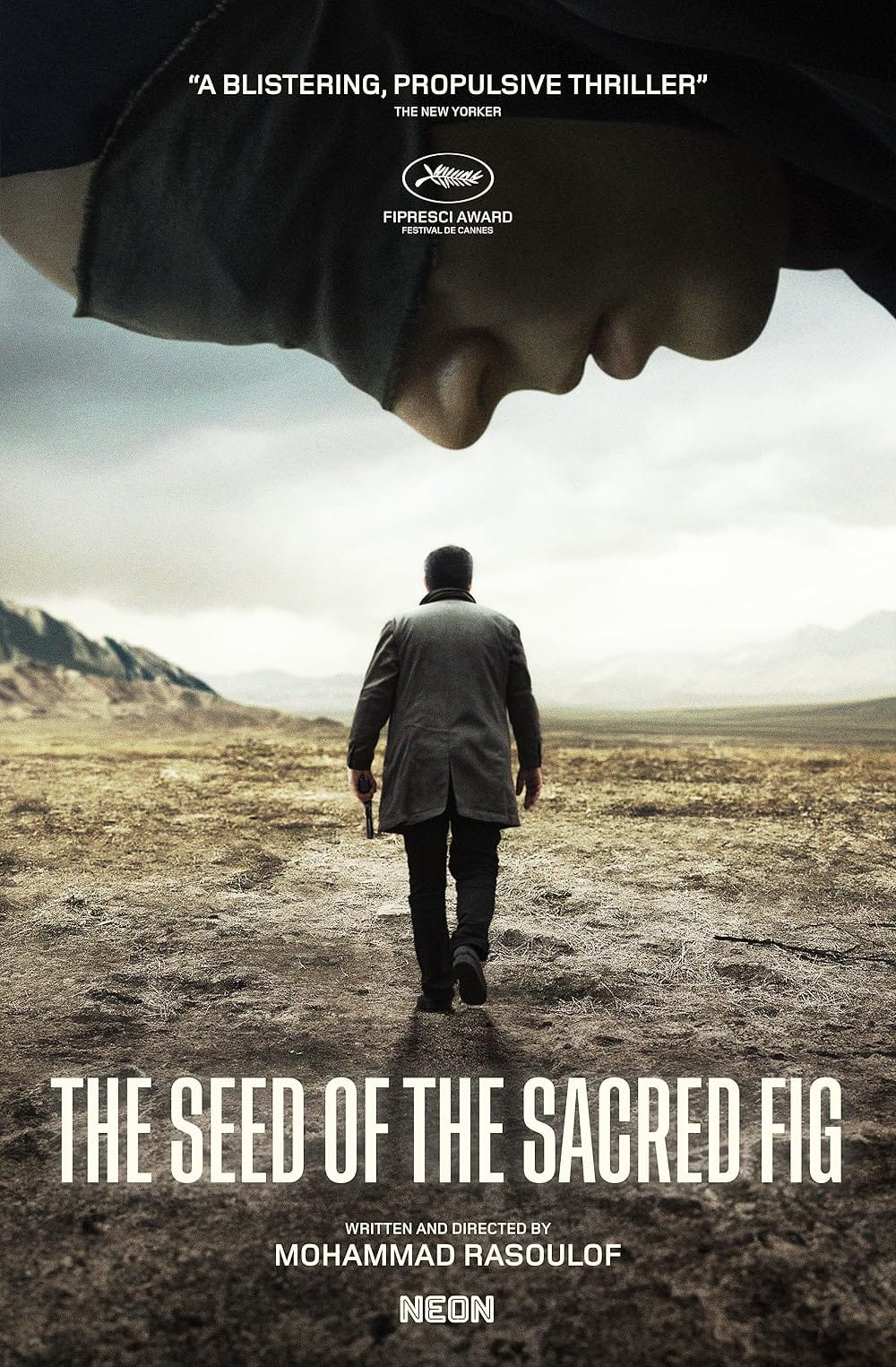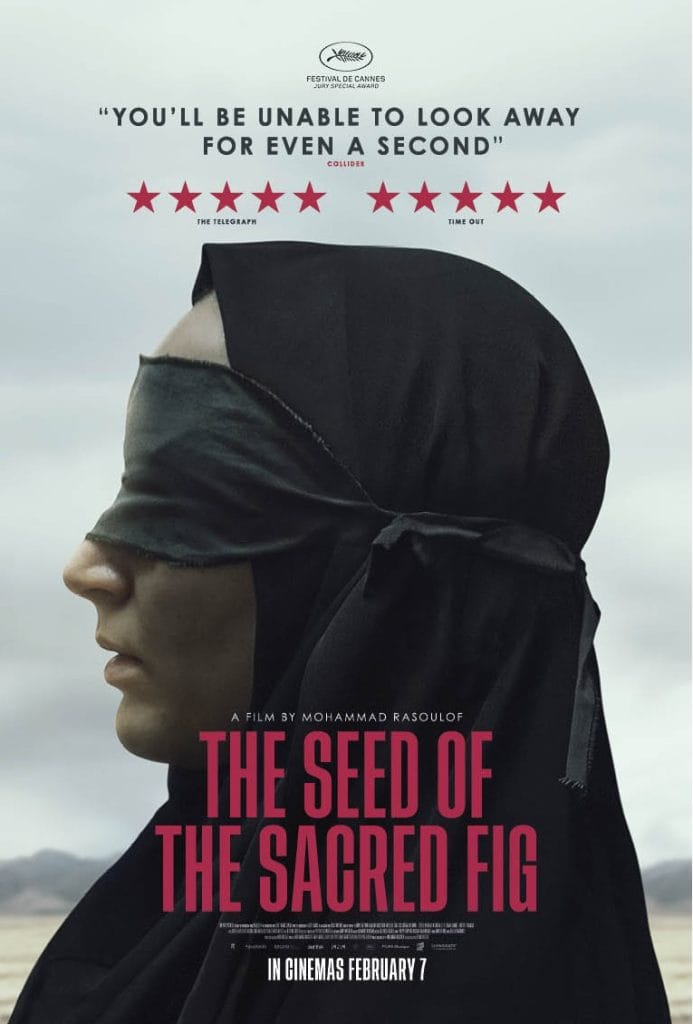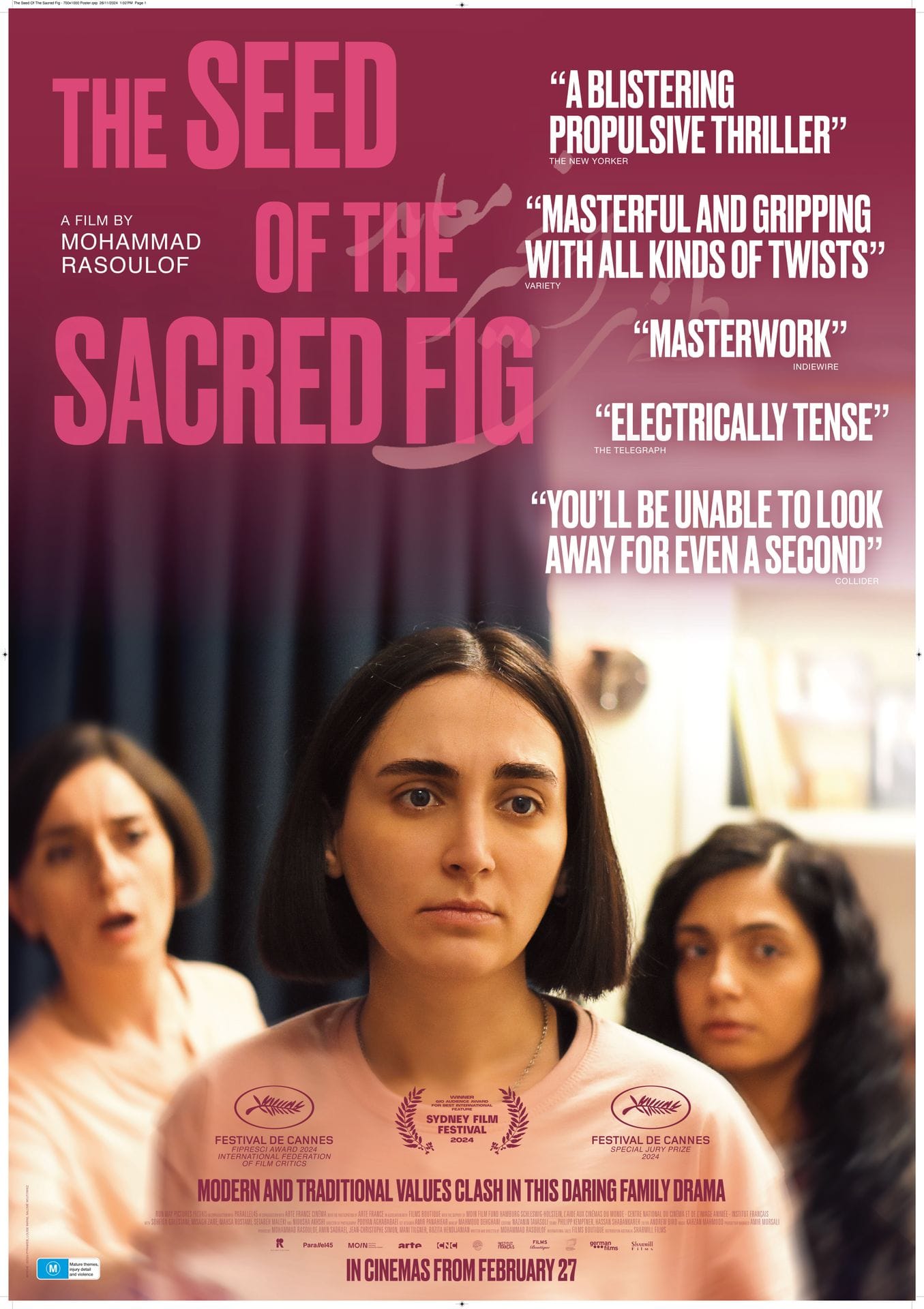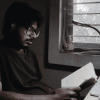In The Seed of the Sacred Fig, Mohammad Rasoulof, the stalwart of dissenting film makers of Iran, has made a deeply personal story of a paranoia-driven man who wants to keep his status quo of power assertion, with family and the state.
Mohammad Rasoulof is not just the victim of the brute oppressive regime of Iran. He is the brave survivor who is asserting his freedom through his cinema.
The survival instinct in the unnatural world of politics can be as cruel as in the natural world– in fact, the cruelty can be much worse than the jungle. There will be too many victims even if there are a few powerful perpetrators. Mohammad Rasoulof is not just the victim of the brute oppressive regime of Iran. He is the brave survivor who is asserting his freedom through his cinema. His latest, The Seed of the Sacred Fig, is another testimony of his passionate bravery to dissent and assert his democratic rights of freedom.
Rasoulof: The imprisoned filmmaker
Freedom of speech across the world is under threat. If the state is not the direct perpetrator to curb the voices, the self-righteous public might be. Mohammad Rasoulof was imprisoned for 8 years for making films and his political activism. He was imprisoned twice (11 months in total) and also served 65 days of solitary confinement in the prison. He was even punished by whippings.
He was shortly released from jail while the Woman, Life, Freedom movement was going on in Iran after the murder of Mahsa Amini by the religious moral-police. She was accused of not wearing the hijab as per the standards set by the government. Rasoulof fled the country by foot, crossing mountains through a secret route and then he began to edit the film that he shot from his sofa, to avoid his presence while the film was being shot. The adventures of making The Seed of the Sacred Fig itself can be an intense political drama. After all, fact is always stranger than fiction!
The personal is political
The writer-director Rasoulof made an investigation judge, Iman (Missagh Zareh), his protagonist in The Seed of the Sacred Fig– the same person would be an antagonist in Rasoulof’s real life. Yet, he dealt the character with such a sensitive delicacy that doesn’t make him a criminal, but only a victim. Iman finally gets the promotion that he had been waiting for all his life. The curse of upping the ladder and becoming closer to power politics is that you have to make a few hard choices.
Iman is forced to sign the investigation documents without even investigating, just because the boss doesn’t like questioning. (The big boss even wiretapped their own offices to spy on their employees.) He faces the ethical dilemmas of everyday life and confides his fears and doubts with his wife, Najmeh (Sohela Golestani). When he says that he has no choice, Najmeh quietly affirms that he does have a choice in a non-confrontational tone.
The survival instincts of power kicks in and the boundaries of political and personal are blurred.
All the fears and doubts of his actions at jobs goes out of the window the moment his job is at risk because the gun that was given by the state for his protection has gone missing. At the end, it all becomes about preserving your own power in The Seed of the Sacred Fig. The survival instincts of power kicks in and the boundaries of political and personal are blurred.
The rebellious new generation in The Seed of the Sacred Fig
Sana (Setareh Maleki) and Rezvan (Mahsa Rostami) are grownup daughters of Iman and Najmeh. They grew up with social media. They know the ‘fact’ that is shown on Instagram and can detect a lie shown on state-controlled television.
The dinner table conversation between father and daughter is one of the important dramatic junctures in the movie that speaks against the hypocrisies of the older generation. Iman name-shames the women who ask for basic dignity and freedom as ‘sluts who want to walk naked on the streets.’ The frustrated daughter shouts, ‘WHO?‘ Iman has no answer.
Woman, life, freedom
The death of Mahsa Amini was a global wakeup call for the world to acknowledge the atrocities of the Iranian state, particularly against women. Sadaf (Niousha Akhshi) in The Seed of the Sacred Fig is brutally shot in her face by the police force, perhaps for not wearing hijab “properly” or just walking along with protestors. The graphic visuals of Najmeh taking the pallets (tiny round shaped bullets) out from Sadaf’s face is a terrifying visual. The closeup shots by Pooyan Aghababaei and quiet sound design by Kai Storck can make your spine shiver.
The dramatic chaos intensifies as the gun goes missing. Iman’s life is at stake here, he can be imprisoned and if the public comes to know his nature of job that criminalises dissenters, he will face a public outlash. The man who had philosophical concerns about his nature of job is now only concerned about his own existence. The family also doesn’t matter to him. He doubts and threatens everyone.
He took the insecure plight of a state that manifests its power only through military power and injected those insecurities into a common bureaucratic man to show us what the fear of losing power can do to a man.
Rasolouf makes a profound statement through these events. He took the insecure plight of a state that manifests its power only through military power and injected those insecurities into a common bureaucratic man to show us what the fear of losing power can do to a man. It feels like he is saying: to survive along with the oppressive state, you don’t have any other choice other than to be an oppressor. This toxic infectious powerplay was conveyed through the poetic metaphors at the start of the film.
The Seed of the Sacred Fig: a cinematic marvel
The Seed of the Sacred Fig is a cinematic marvel. Can you imagine that Rosolouf was making his ambitious film–that he had been thinking about making for 15 years– while he was sitting on a sofa receiving the live feed of the shoot through a broadband– that was registered in someone else’s name?
It doesn’t stop here. He was sending the rushes as proxy files to his editor Andrew Bird in Germany. He used to monitor the cuts through WhatsApp. He got his hands on the full edit only after he escaped Iran though secret mountains on foot. He escaped and attended the 77th Cannes Film Festival where his film premiered while all his cast and crew were still stuck in Iran facing the fears of the dangers of imprisonment.
Mohammad Rasolouf deserves all the praise and acknowledgement. His assertion of liberty to make his voice heard as a filmmaker must resonate with all the viewers who value free speech in a democracy. The Seed of the Sacred Fig is competing in Oscars 2025 under the International Feature Film category that it truly deserves, if not for the technical prowess, but for the brave values it promotes in the most adverse deathly conditions of the oppressive Iranian regime.
About the author(s)
Azdhan (He/Him) is a full-time film critic freelancing for Feminism In India. If he is not reading or writing, he will just be zoning-out– even if there is no window– always thinking of writing his next novel to adapt it into a screenplay. The backend process of trying to build something that can solve urban loneliness is also always on his mind.
